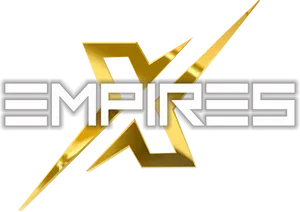At that price, Coca-Cola will only be earning about $21,500 (minus any expenses) if the project mints out, plus any resale fees. A many-billion-dollar company like Coca-Cola might consider just donating the 20 grand themselves.
Coca-Cola launches Pride NFTs, bringing the commercialization of Pride to new lows
Mirror Trading International charged after $1.7 billion fraud
Mirror Trading International was founded and operated by Cornelius Johannes Steynberg, who had been on the run from South African police until recently being detained in Brazil on an INTERPOL warrant. The CFTC is seeking full restitution, disgorgement, and bans from future trading.
On September 7, 2023, a U.S. District Court ordered MTI to pay $1.7 billion in restitution.
Owner of Circle Society platform, which advertised 600% returns, charged with fraud
The scheme ultimately drew in about $12 million from investors, beginning in late 2017. Saffron was charged with one count of conspiracy to commit wire fraud, four counts of wire fraud, one count of conspiracy to commit commodities fraud, and one count of obstruction of justice. If convicted of all charges, he faces up to 115 years in prison.
Previously, in April 2021, the a court ordered Circle Society and Saffron to pay $32 million in relation to the scheme after a default judgment in a lawsuit from the CFTC, who described the whole thing as a Ponzi scheme.
- "Justice Department Announces Enforcement Action Charging Six Individuals with Cryptocurrency Fraud Offenses in Cases Involving Over $100 Million in Intended Losses", U.S. Department of Justice
- "Federal Court Orders Nevada Company and its Owner to Pay More Than $32 Million for Cryptocurrency Fraud and Misappropriation Scheme", CFTC
Operator of fraudulent Titanium Blockchain Infrastructure Services ICO charged with securities fraud
The DoJ alleges that Stollery falsified the TBIS whitepaper, wrote fake testimonials on the project website, and made up business relationships with the U.S. Federal Reserve Board and large companies including Apple, Pfizer, and Disney.
If convicted on all counts, Stollery faces up to 20 years in prison.
U.S. Department of Justice charges founders of the $100 million EmpiresX ponzi scheme
All three are facing charges of conspiracy to commit wire fraud and conspiracy to commit securities fraud, and Pires and Goncalves have also been charged with conspiracy to commit international money laundering. If convicted on all counts, Pires and Goncalves face up to 45 years in prison and Nicholas faces up to 25 years in prison.
U.S. Department of Justice charges one person behind the "Baller Apes" rug pull
The people behind the Baller Ape NFT project were also reportedly behind at least two other NFT rug pulls, including "Big Daddy Ape Club". These projects were not mentioned in the DoJ press release.
FTX reportedly approaches a deal to buy BlockFi in "fire sale"
BlockFi was last valued at $4.8 billion, but FTX is expected to pay around $25 million to buy the company. BlockFi CEO Zac Prince refuted what he described as a "market rumor": "I can 100% confirm that we aren't being sold for $25M." A leaked call with Morgan Creek Digital investors suggested they were trying to counter FTX's offer, and that BlockFi was being valued at less than $500 million. The call also revealed that BlockFi's loan to Three Arrows Capital had been $1 billion, and that it was backed by collateral of $1.33 billion in Bitcoin and GBTC.
CNBC reported that, according to one of their sources, "equity investors in BlockFi are 'wiped out' and are now writing off the value of their losses."
FOIA request reveals that Coinbase has been providing ICE with blockchain analytics tools
Cryptocurrency has long been touted as a tool for the unbanked, including those who don't have access to banking because they're undocumented, and for people hoping to operate free from government observation. Coinbase, however, has actively courted government contracts such as this one, which has not won them favor among the more libertarian-leaning crypto enthusiasts.
SEC rejects Grayscale application to create Bitcoin ETF
Also on the 29th, the SEC rejected an application from Bitwise to create a Bitcoin exchange-traded product (ETP).
Grayscale immediately announced they would be suing the SEC, a course of action they'd been suggesting for several months. Don't hold your breath, though — a litigation analyst estimated such a lawsuit would take 12–18 months to reach resolution.
Crypto games site "w3itch.io" blatantly copies itch.io, hosts stolen games
W3itch.io apparently decided the best way to accomplish their goal would be to not only steal itch.io's site design, but the source code itself. The games hosted on the website were also taken without the consent from their creators.
After being called out by the KennyNL Twitter account, W3itch.io admitted to stealing the CSS, as well as buying Twitter followers. However, they refused to take the website down, and seemed to claim they were unable to remove listings of stolen games.









